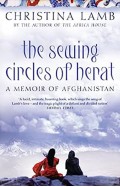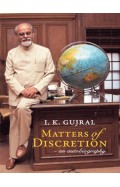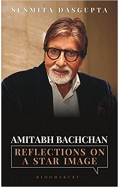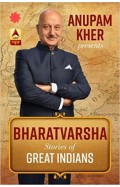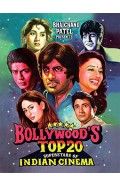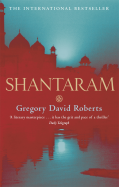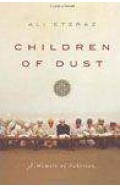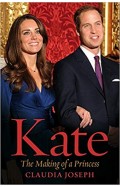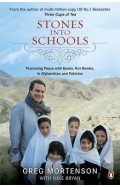- Home
- Categories
- Non Fiction
- Art. Design and Architecture
- Kanan Devi: The First Superstar of Indian Cinema
Kanan Devi: The First Superstar of Indian Cinema
By: Mekhala Sengupta
-
Rs 562.50
- Rs 750.00
- 25%
You save Rs 187.50.
Due to constant currency fluctuation, prices are subject to change with or without notice.
Working as a maid to pay for her meals at the age of six and living in a notorious neighbourhood known for its brothels, Kanan Devi was the unlikeliest superstar. She had no lineage, no godfather and no resources to draw upon. Yet, beginning as a child artist at the age of ten, she rose to become one of the biggest screen divas of her time, commanding a fee of Rs 1,00,000 for a song and Rs 5,00,000 for a film. She was eventually feted with the Dadasaheb Phalke Award. Kanan Devi: The First Superstar of Indian Cinema is the incredible story of Kanan Devi's ascent as she went on to star and sing with stalwarts of the era like K.L. Saigal and Ashok Kumar, among many others. She became the voice of the musical works of Rabindranath Tagore, Kazi Nazrul Islam, R.C. Boral, Pankaj Mullick, Kamal Dasgupta and many others and must be credited with bringing Tagore and Nazrul directly to the public arena much before their respective works had evolved into what is now called Rabindra Sangeet or Nazrul Geeti. Kanan Devi was not only one of the few stars to have been successful both in silent films and the talkies, she was also one of the few artists to be internationally recognized in Hollywood magazines as a gifted singer and actor, hobnobbing with the likes of Vivien Leigh. But it is not only her cinematic achievements that set her apart. She was a woman of many dimensions: a fashionista, a producer who made many successful films in the fifties and sixties, a philanthropist for women in theatre and film-centred welfare projects, and a feminist before the word gained currency, walking out of relationships when they came in the way of her profession. She possessed astute financial acumen and, remarkably for a woman of her time, managed her own investments and income. Mekhala Sengupta's well-researched account not only brings to life a fearless pioneer who fought stereotypes to live life on her own terms, but is also a loving ode to a lost era of Indian cinema.
Working as a maid to pay for her meals at the age of six and living in a notorious neighbourhood known for its brothels, Kanan Devi was the unlikeliest superstar. She had no lineage, no godfather and no resources to draw upon. Yet, beginning as a child artist at the age of ten, she rose to become one of the biggest screen divas of her time, commanding a fee of Rs 1,00,000 for a song and Rs 5,00,000 for a film. She was eventually feted with the Dadasaheb Phalke Award. Kanan Devi: The First Superstar of Indian Cinema is the incredible story of Kanan Devi's ascent as she went on to star and sing with stalwarts of the era like K.L. Saigal and Ashok Kumar, among many others. She became the voice of the musical works of Rabindranath Tagore, Kazi Nazrul Islam, R.C. Boral, Pankaj Mullick, Kamal Dasgupta and many others and must be credited with bringing Tagore and Nazrul directly to the public arena much before their respective works had evolved into what is now called Rabindra Sangeet or Nazrul Geeti. Kanan Devi was not only one of the few stars to have been successful both in silent films and the talkies, she was also one of the few artists to be internationally recognized in Hollywood magazines as a gifted singer and actor, hobnobbing with the likes of Vivien Leigh. But it is not only her cinematic achievements that set her apart. She was a woman of many dimensions: a fashionista, a producer who made many successful films in the fifties and sixties, a philanthropist for women in theatre and film-centred welfare projects, and a feminist before the word gained currency, walking out of relationships when they came in the way of her profession. She possessed astute financial acumen and, remarkably for a woman of her time, managed her own investments and income. Mekhala Sengupta's well-researched account not only brings to life a fearless pioneer who fought stereotypes to live life on her own terms, but is also a loving ode to a lost era of Indian cinema.
Kanan Devi: The First Superstar of Indian Cinema
By: Mekhala Sengupta
Rs 562.50 Rs 750.00 Ex Tax :Rs 562.50
Zubin Mehta: A Musical Journey (An Authorized Biography)
By: VOID - Bakhtiar K. Dadabhoy
Rs 472.50 Rs 1,050.00 Ex Tax :Rs 472.50
The Sewing Circles of Herat - My Afghan Years
By: Christina Lamb
Rs 1,751.75 Rs 2,695.00 Ex Tax :Rs 1,751.75
In the Streets of Tehran - Woman, Life, Freedom
By: Christina Lamb
Rs 2,965.50 Rs 3,295.00 Ex Tax :Rs 2,965.50
Amitabh Bachchan: Reflections on a Star Image
By: Susmita Dasgupta
Rs 646.75 Rs 995.00 Ex Tax :Rs 646.75
Bollywood's Top 20 - Superstars of Indian Cinema
By: Bhaichand Patel
Rs 220.00 Rs 400.00 Ex Tax :Rs 220.00
Manning Up: How the Rise of Women Has Turned Men into Boys
By: Kay Hymowitz
Rs 646.75 Rs 995.00 Ex Tax :Rs 646.75
The Sewing Circles of Herat - My Afghan Years
By: Christina Lamb
Rs 1,751.75 Rs 2,695.00 Ex Tax :Rs 1,751.75
In the Streets of Tehran - Woman, Life, Freedom
By: Christina Lamb
Rs 2,965.50 Rs 3,295.00 Ex Tax :Rs 2,965.50
Amitabh Bachchan: Reflections on a Star Image
By: Susmita Dasgupta
Rs 646.75 Rs 995.00 Ex Tax :Rs 646.75
Bollywood's Top 20 - Superstars of Indian Cinema
By: Bhaichand Patel
Rs 220.00 Rs 400.00 Ex Tax :Rs 220.00
No recently viewed books available at the moment.
Zubin Mehta: A Musical Journey (An Authorized Biography)
By: VOID - Bakhtiar K. Dadabhoy
Rs 472.50 Rs 1,050.00 Ex Tax :Rs 472.50
Kanan Devi: The First Superstar of Indian Cinema
By: Mekhala Sengupta
Rs 562.50 Rs 750.00 Ex Tax :Rs 562.50
The Sewing Circles of Herat - My Afghan Years
By: Christina Lamb
Rs 1,751.75 Rs 2,695.00 Ex Tax :Rs 1,751.75
In the Streets of Tehran - Woman, Life, Freedom
By: Christina Lamb
Rs 2,965.50 Rs 3,295.00 Ex Tax :Rs 2,965.50
Amitabh Bachchan: Reflections on a Star Image
By: Susmita Dasgupta
Rs 646.75 Rs 995.00 Ex Tax :Rs 646.75
Bollywood's Top 20 - Superstars of Indian Cinema
By: Bhaichand Patel
Rs 220.00 Rs 400.00 Ex Tax :Rs 220.00












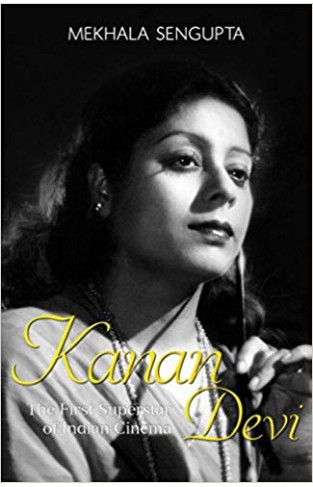
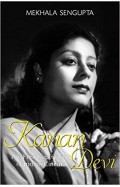
-120x187.jpg?q6)





